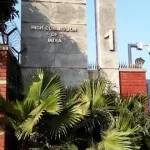ISLAMABAD: The Senate saw a tense debate Tuesday over the government’s proposal to divert water from the Indus River for corporate farming. Lawmakers from all parties urged that the issue be settled at the Council of Common Interests (CCI).
Sherry Rehman, a Senate parliamentary leader and vice president of the PPP, criticized the plan to build six new canals without first consulting the appropriate parties.
She questioned why the government was silent on contentious projects while speaking on an adjournment motion.
She demanded guarantees that “half of Pakistan will not be made water-deficient for corporate farming,” saying that if the caretakers could not grasp what “green Pakistan” meant, at least we should.
She requested that the administration let Sindh know if there were any requirements. “Let us be quite clear. This has to be resolved. She expressed disappointment that the CCI had not convened for 11 months and said, “There are constitutional forums to sort this out.”
She stated that Sindh was already the most impacted province because of the “incompetence” of the Indus River System Authority (IRSA), and that the PPP views this action by the federal government as a breach of Sindh’s rights. Ms. Rehman contended that irrigating Cholistan’s arid territory may cause Sindh’s lush plains to become desertified, endangering livelihoods and agricultural output. According to her, the proposal could result in widespread unemployment and the displacement of 20 million people.
“Forums paralyzed”
Since the PPP leader’s party was a member of the government coalition, Senate Opposition Leader Syed Shibli Faraz claimed he couldn’t figure out who the PPP leader was complaining to. “The administration has you as a key ally. Even the package of constitutional amendments was led by you. “You have the right to be heard,” he said.
He bemoaned the lack of institutionalization of the council and the lack of an organized secretariat, although pointing out that the CCI was the platform for resolving inter-provincial issues.
He emphasized that certain things must be backed or opposed on the basis of principles and stated that a meeting of the CCI must be called right away given the current situation.
Senator Kamran Murtaza, the JUI-F legislative leader in the House, stated that if there was excess water available, no one would protest, pointing out that there are already shortages in water distribution under the 1991 Water Accord.
According to PPP Senator Jam Saifullah Khan, if the Council of Common Interests did not take up the matter of six new canals, it would be brought before the Constitutional Bench of the Supreme Court. He cautioned that any unilateral decision to construct canals would have major consequences because the federation is made up of four provinces.
The PML-N should not take PPP for granted, he made plain. He stated that the construction of these canals should be halted right once and that “if some forces are interested in this matter, they should be made to understand that don’t play with fire.”
The PML-N In support of his claim that provinces had the right to utilize their allotted water share, Senator Irfan Siddiqui cited the 1991 Water Accord. He maintained that the agreement permits Punjab to build canals using its portion.
Sherry Rehman’s worries were echoed by Senator Ali Zafar, the PTI’s parliamentary leader, who emphasized that water scarcity was a national problem made worse by overcrowding, climate change, and ineffective irrigation infrastructure.
“Inaccurate in fact”
Musadik Malik, the minister of water resources, denied the opposition’s allegations, claiming that no connection canal, dam, or barrage is being built on the Indus River.
According to him, the Diamer-Bhasha and Dasu dams were being built on the river; the latter’s development was authorized during the PPP’s tenure in 2009–2010. “All of the claims made are factually incorrect, so the adjournment motion did not stand its ground,” he stated.
He explained that the Cholistan Canal is being constructed on the Sutlej River, using Punjab’s allotted water share under the 1991 agreement to draw water from the Sulemanki Barrage in Punjab.
“There is a misconception that Sindh is not receiving its fair share of water,” Mr. Malik stated.
He declared that a meeting of the CCI will be held shortly. With representatives from Sindh and Balochistan in attendance, Ms. Rehman asked that the issue be sent to the appropriate committee for additional clarification. She also insisted on a set date for the postponed CCI meeting.








